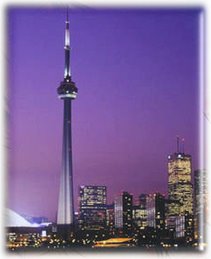Place to Live: The cost of housing in Canada varies in each city and region. Rents and home prices are generally higher in Vancouver and Toronto than in other cities. Housing costs also depend on your location within the city. Initial cost effective choice is renting an apartment. Apartment postings can be found in a number of places, especially if you are wanting to share an apartment. A good place to search for apartments is the local newspaper. Other places to look is Universities, Libraries, and even sometimes Bustops. In some cities such as Toronto, there are special apartment magazines than solely rent apartments, houses, and condos. Also ask friends or colleagues who might be able to help you.
Useful Info for Newcomers: 1
Food and Cooking in Canada may be different from what you were used to in your native country. Like everyone who moves to a new country, you will probably have to make changes in some of the ways you buy, store and cook food. Most Canadians shop for food at large stores called supermarkets. You can also purchase food at smaller grocery stores and specialty shops. In larger cities with well-established immigrant communities, you may find specialty food stores that sell food from your home country. However, some of your traditional foods may not be available in Canada or may be very expensive. List of Supermarkets include: Costco, No Frills, Metro, Loblaws, Price Chopper, Sobeys etc.
Tip: Cooking is always cheaper than buying cooked food
Educated Immigrants are Underemployed: Report
Study: Quality of employment in the Canadian immigrant labour market - complete report here>>
Two-thirds of university-educated recent immigrants to Canada are underemployed in jobs requiring no more than a college education or apprenticeship, according to a new Statistics Canada report. Looking at Canada's immigrant labour market in 2008, found that immigrant wages were lower while involuntary part-time work and temporary employment were more common than among Canadian-born workers. However, after 10 years in Canada, immigrant employment looks similar to that of their Canadian-born counterparts. In all, more than 1.1 million workers aged 25 to 54 with a university degree were under-employed in jobs requiring a college education or apprenticeship last year, and immigrants are 1.5 times more likely to fall into that category than their Canadian-born counterparts. "It's a confirmation of what we see," says Allison Pond, executive director of ACCES Employment Services in Toronto. "The issues still remain. There's a lack of recognition of foreign-trained credentials and access to the labour market; we still are facing barriers. I see it as something we're continuing to work to change." The job landscape is uneven as Canada emerges from the recession, she says, because they see elevated unemployment in some sectors while others — including IT and finance — are experiencing a shortage of skilled workers.
Two-thirds of university-educated recent immigrants to Canada are underemployed in jobs requiring no more than a college education or apprenticeship, according to a new Statistics Canada report. Looking at Canada's immigrant labour market in 2008, found that immigrant wages were lower while involuntary part-time work and temporary employment were more common than among Canadian-born workers. However, after 10 years in Canada, immigrant employment looks similar to that of their Canadian-born counterparts. In all, more than 1.1 million workers aged 25 to 54 with a university degree were under-employed in jobs requiring a college education or apprenticeship last year, and immigrants are 1.5 times more likely to fall into that category than their Canadian-born counterparts. "It's a confirmation of what we see," says Allison Pond, executive director of ACCES Employment Services in Toronto. "The issues still remain. There's a lack of recognition of foreign-trained credentials and access to the labour market; we still are facing barriers. I see it as something we're continuing to work to change." The job landscape is uneven as Canada emerges from the recession, she says, because they see elevated unemployment in some sectors while others — including IT and finance — are experiencing a shortage of skilled workers.
New Canadian Citizenship Guide
A new greatly expanded study guide for Canadian citizenship was launched recently by Citizenship, Immigration and Multiculturalism Minister Jason Kenney. In particular those taking the Citizenship test from March 2010 onwards should study the Citizenship Guide called "Discover Canada". The Rights and Responsibilities of Citizenship covers freedom, democracy, human rights, the rule of law and the equality of men and women. The Canadian Government hopes that the guide will help to promote a greater understanding of Canada's history and values and the importance of institutions such as Parliament. This is the first time that the guide has undergone such an extensive review since it was introduced in 1995. Citizenship Responsibilities Section of the Guide:
DEFENDING CANADA: "There is no compulsory military service in Canada. However, serving in the regular Canadian Forces (navy, army and air force) is a noble way to contribute to Canada and an excellent career choice (www.forces.ca)"
DEFENDING CANADA: "There is no compulsory military service in Canada. However, serving in the regular Canadian Forces (navy, army and air force) is a noble way to contribute to Canada and an excellent career choice (www.forces.ca)"
Subscribe to:
Posts (Atom)


